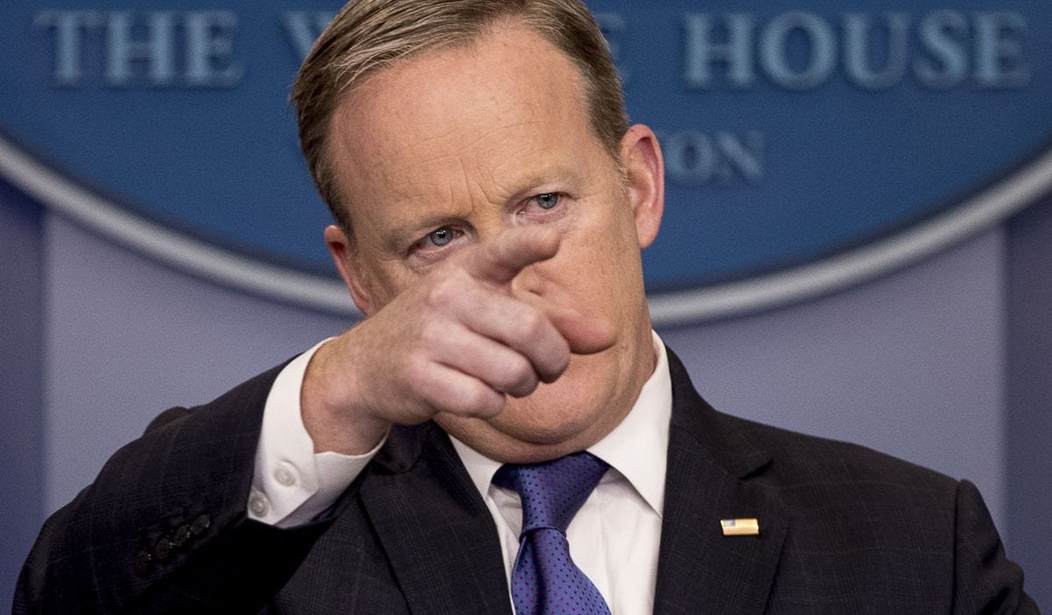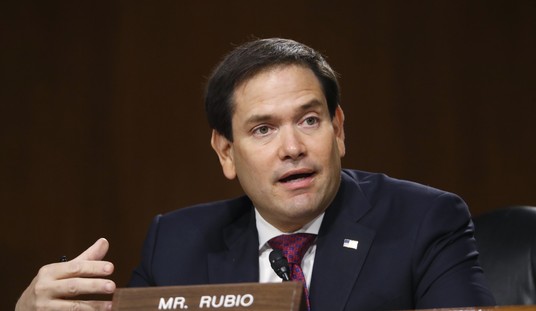The White House Press Briefing supposedly offers a service to the Republic loftier than FDR’s swimming pool, built as therapy for his polio, which the Briefing Room replaced. But identifying a single American — one who’s never been compensated to be in that room, of course — as a legitimate beneficiary of that lofty service is a unicorn hunt.
This isn’t punkish silliness about “smashing” the system: a disinterested analysis should conclude that the Briefing, as currently produced, serves no participants’ interest — or at least fails to optimally serve anyone’s interest — beyond its being an ideal staging for exploitation by a narrative-minded press or political party. Sean Spicer is no more or less the root problem in that room than the Obama stiffs were, who simply had the benefit of interests aligned with the majority of the room’s long-term media tenants.
For either the public servants of an administration or its citizens, we should all properly identify the process, as it currently proceeds, as largely ceremonial. An aggressively inefficient system that fails by every measure to enact the spirit of an accountable Federal administration. I know most of you agree, and I know those who prefer the Briefing stay the same strongly correlate with those who don’t attach a negative connotation to “elite.”
Should Spicer indeed have been placed in the position of hiring his replacement, he should first identify the ideal public servant’s goal: a better-served populace. He should hopefully then be led to identify the root cause of White House communication issues to be not in the person of press secretary, but in a process that allows the other occupants of the room a false, unearned share in the work of governing.
Spicer should then hopefully recognize, Art of the Deal-wise, that White House correspondents — just like the chapped NATO members, tsk-tsking potential TPP partners, and indignant Paris accord signatories — can be exposed as not upholding any values in particular beyond self-interest, once their self-interest becomes existential. Change, disruption, negotiation — it’s all about leverage. He should start talking about a change in process, and I promise the White House correspondents will go simpering off to punditry gigs should Spicer expose their artificial claims to leverage.
And expose them he can, because a majority of Americans agree with Bill Buckley regarding who “we should rather be governed by.”
Sean, don’t focus on your own replacement; simply suggest you didn’t hold the role in that room Americans really want to see occupied by new blood.
Logistics may require keeping the current “republic of questioners” structure for the Briefing. But we couldn’t possibly have stumbled into a less-democratic means of selecting the republic than to have Americans be solely represented at the Briefing by 50 tenured members of the world’s least-trusted profession. So try feeding them this, Spicer:
“The administration will offer a prepared statement to commence each briefing. Following that: We’d like to see fifty seats in the room for fifty Americans, concerns free of party, or outlet, chosen randomly to represent the citizens’ concerns each week. We should rather the country’s dialogue be governed by the country, agreed?“
Art of the Deal-wise, Jim Acosta and his socks, let’s say, certainly can’t respond with a defense of his being able to offer a better summation of the citizen’s question, one free from political influence, than the citizen himself. Acosta could never critique Spicer’s proposal with any argument besides his blind faith in elitism.
And that isn’t simply a matter of Acosta being placed in the uncomfortable position of defending his job by critiquing the country — they being his readers, his income — but because no defense of his position exists that isn’t objectively false.
The point here is not to simply suggest a townhall debate structure could produce an idealized delivery of open government, though it by definition could not be less fulfilling towards that goal. Rather, the point is that, in this negotiation of rethinking the White House Press Briefing, Spicer must recognize that the administration’s leverage is overwhelming.
None of D.C., none of it, is ever about extraordinary talent or capacity. They like to think they’re indispensable. But a free, democratized, limited Federal government is always and forever simply about recognizing and applying leverage.
And the great thing about decision-making governed by leverage is that, in an open, free society, leverage can’t be faked. It’s there — or it isn’t.
So he should suggest a path that finally comes closer to offering that lofty service of unscripted administration access to the Republic. And the rest of us names in Bill Buckley’s phonebook need to wield what amounts to the ultimate leverage in this negotiation: each of us is — by definition — more capable than Jim Acosta, Jake Tapper, or anyone else who’s ever been paid to defile Roosevelt’s old pool room of representing the country’s real concerns.









Join the conversation as a VIP Member